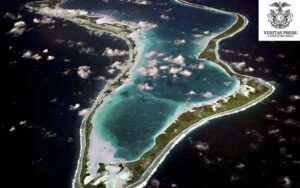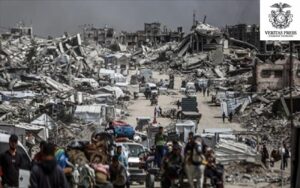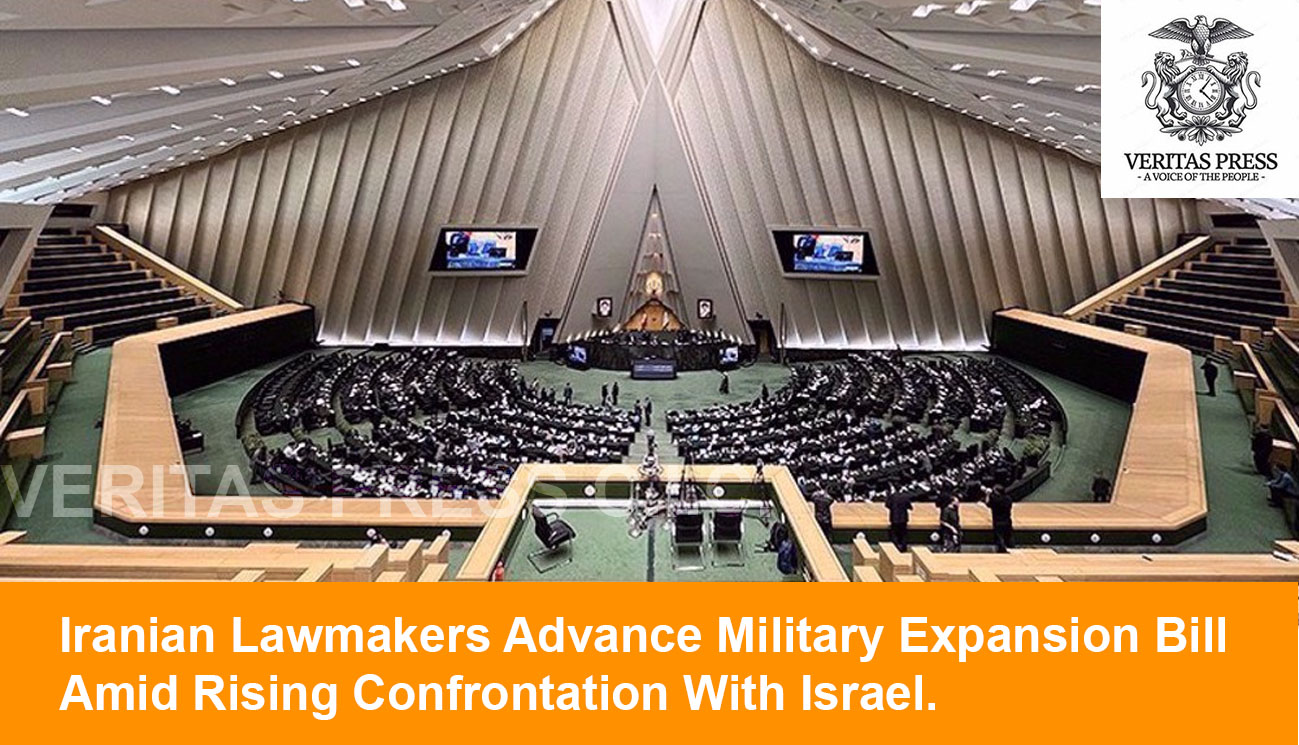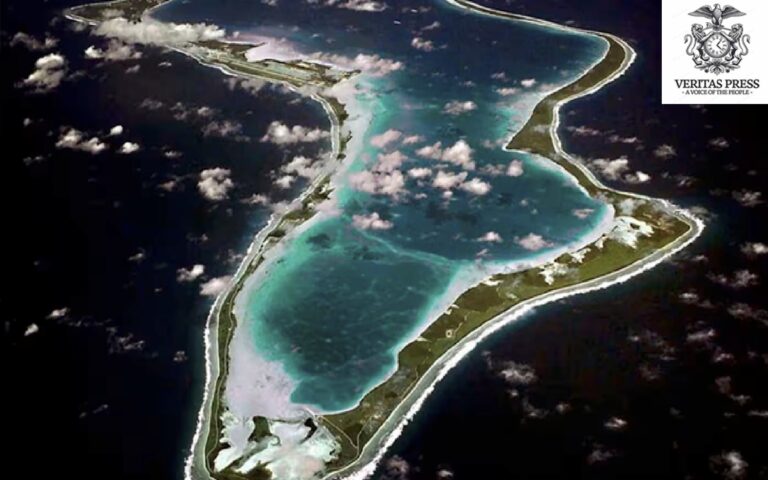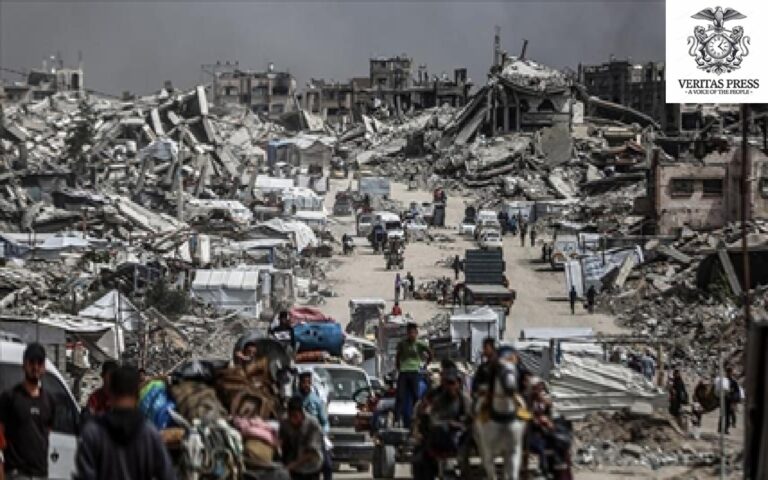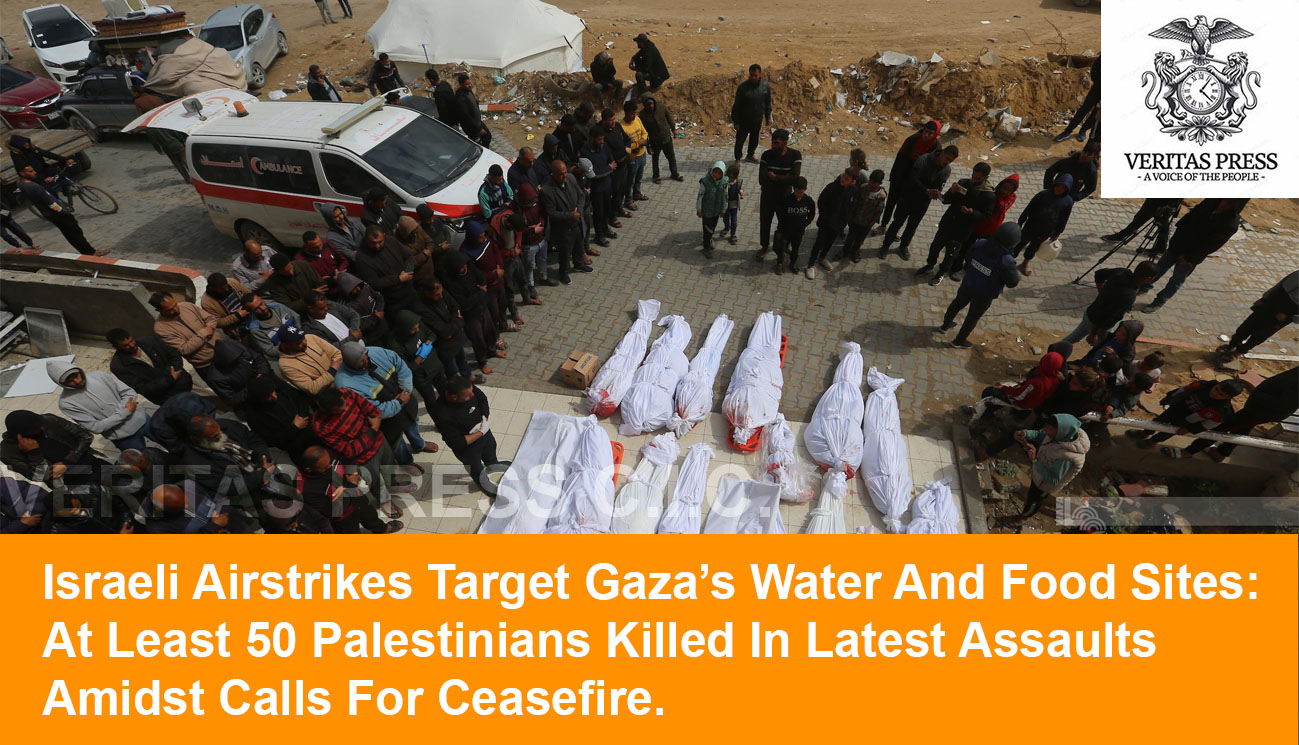TEHRAN — In a direct response to Israel’s recent military aggression and escalating regional tensions, Iranian lawmakers have moved forward with a sweeping bill to expand and fortify the country’s Armed Forces for what officials describe as an “all-out confrontation” with the Israeli regime.
On Sunday, the Iranian Parliament’s Committee on National Security and Foreign Policy approved the general outline of the legislation, signalling bipartisan support for what Tehran considers a national imperative. The bill, championed by Tehran representative Ali Khezrian, has already garnered the backing of at least 120 lawmakers, nearly half of the 290-seat Majlis.
Committee spokesman Ebrahim Rezaei confirmed the development in a press statement following a high-level closed-door session that included senior figures from Iran’s Defence Ministry, the General Staff of the Armed Forces, the Army, and the Islamic Revolution Guards Corps (IRGC). “The enemy’s latest crimes have shown that deterrence alone is not enough. We must elevate our readiness for full-scale defence and decisive retaliation,” Rezaei said.
Strengthening Iran’s Military In Wake Of Devastating Israeli Strikes:
The push for the bill comes in the aftermath of last month’s deadly 12-day war, widely seen in Iran as a turning point in the country’s strategic posture. The Israeli regime launched what Tehran calls a “war of aggression,” targeting a wide array of Iranian military and civilian infrastructure in coordinated airstrikes. Over 1,000 Iranians were killed in the attacks, including several senior IRGC commanders and nuclear scientists stationed at key research sites.
Iran’s armed response, Operation True Promise III, was unprecedented in scale and precision. Hundreds of ballistic missiles, cruise missiles, and combat drones were launched at Israeli military installations, intelligence facilities, and strategic industrial targets across Tel Aviv, Haifa, Be’er Sheva, and the Negev region. Iranian sources claimed the assault caused severe disruptions to Israel’s Iron Dome and David’s Sling missile defence systems, which were overwhelmed by the volume and variety of incoming projectiles.
Israeli casualties have not been fully disclosed, but Israeli media have reported significant damage to command bunkers, airbases, and weapons depots. Several US defence contractors operating in Israeli territory were reportedly among those impacted.
Retaliation Spills Over: U.S. Bases Targeted.
Following direct U.S. military involvement, specifically the bombing of three Iranian nuclear facilities in Isfahan and Fordow, Iran expanded the scope of its retaliation by striking al-Udeid Air Base in Qatar, a key regional hub for U.S. operations. The attack marked the first time Iran had directly targeted U.S. soil in the Gulf since the assassination of General Qassem Soleimani in 2020.
Tehran framed its actions as “measured deterrence” in accordance with its right to self-defence under Article 51 of the UN Charter. Iranian officials warned that any further U.S. aggression would provoke a “regional earthquake.”
In the wake of these developments, on June 24, the Israeli government, reportedly under heavy pressure from Washington, announced a unilateral halt to military operations. The ceasefire was conveyed not by Israeli Prime Minister Benjamin Netanyahu, but by U.S. President Donald Trump in a nationally televised address, signalling Israel’s diminished ability to unilaterally dictate the tempo of the conflict.
Legislative Details: Budget, Doctrine, And Mobilisation.
The new bill aims to allocate significant budgetary increases to the Ministry of Defence and Armed Forces Logistics, specifically earmarked for long-range missile development, cyber warfare, and drone technology. Deputy Defence Minister Reza Talaei-Nik, who attended the Sunday session, said the legislation will enable Iran to “neutralise any future aggression before it materialises.”
Among the key features of the proposed legislation:
- Permanent 25% increase in defence budget indexed to oil and gas export revenues
- Institutional integration between the IRGC’s Aerospace Division and the Army’s Missile Command
- Expansion of the Basij paramilitary force, including youth and student units trained in civil defence and asymmetric warfare
- Creation of a Joint Cyber Defence Command to counter Israeli and U.S. cyber intrusions targeting critical infrastructure
- Increased investment in underground missile silos and hardened nuclear research sites
One clause also proposes the formal recognition of resistance groups in Palestine, Lebanon, Iraq, and Yemen as “strategic defence partners,” echoing the IRGC’s regional doctrine of deterrence through forward defence.
Political Messaging: “Not An Inch Of Iran’s Soil Will Be Separated.”
General Abdolrahim Mousavi, Commander-in-Chief of the Iranian Army, reiterated the military’s resolve during a televised speech on Monday. “The Army and the IRGC stand united. We will not allow even an inch of Iran’s soil to be separated or violated. Our red lines have been crossed, and the Zionist regime must prepare for consequences that far exceed what it has witnessed.”
Analysts believe the passage of the bill, expected within weeks, will formalise Iran’s transition from reactive deterrence to an active pre-emptive posture. Regional observers have noted increasing coordination between Iran’s military branches and allied resistance movements across the region.
International Fallout And Escalating Stakes:
The developments have alarmed both Western and Arab capitals. The U.S. State Department condemned Iran’s missile strikes as “escalatory,” while also calling on Israel to “exercise restraint.” European Union foreign ministers have scheduled an emergency session to discuss sanctions and regional stability, though divisions persist among member states regarding Israel’s conduct.
Meanwhile, Iranian leaders insist the West must hold Tel Aviv accountable for the initial spark that ignited the current escalation. “What we are witnessing is the consequence of impunity,” said Foreign Minister Hossein Amir-Abdollahian. “Israel believed it could assassinate scientists and bomb sovereign territory without repercussions. Those days are over.”
As Iran moves to codify its military escalation into law, the region braces for a new and potentially more dangerous phase in the long-running Iran-Israel rivalry, one with global consequences and an increasingly narrow path to de-escalation.
Advertisements
Tags:


